Activities at the Hanoi Tax Department. Illustrative photo: VNA
Lump-sum tax is a tax calculated based on the lump-sum revenue determined by the tax authority, applied to business households and business individuals paying taxes by lump-sum method. Resolution No. 68-NQ/TW dated May 4, 2025 of the Politburo on private economic development and Resolution No. 198/2025/QH15 of the National Assembly: On a number of special mechanisms and policies for private economic development have set out the requirement to abolish lump-sum tax for business households from January 1, 2026. This is an important policy affecting millions of business households across the country, marking a turning point in tax management, towards transparency and modernization of the economy.
Consider investing early to adapt in time
Mr. Ly Thai Hong Minh, owner of a coffee shop in Dong Nai, said that the coffee shop has a machine to issue invoices, but to connect directly with the tax authority, it is necessary to have a specialized accounting department or staff with basic training to avoid errors when issuing invoices online on tax software. The mandatory application of electronic invoices from June 1 for businesses with revenue of 1 billion VND/year is a big change, especially for coffee shop owners.
According to Mr. Ly Thai Hong Minh, when applying the cash register, his coffee shop in particular or the business household in general has some concerns, specifically about the initial investment cost and the cash register connected to the tax authority; need to buy or upgrade the cash register system with the function of issuing electronic invoices, synchronizing data, accounting software, electronic invoices; may have to pay monthly/yearly service fees; train employees to learn how to use the new system, avoid errors when issuing invoices; worry about technology, system stability.
There are also some concerns such as: If the cash register or internet connection has problems, will there be interruptions in transactions; the security of revenue data and customer information transmitted directly to the tax authorities; whether there is a risk of leakage; changes in customer habits, some regular customers (especially the elderly) may not be familiar with electronic invoices instead of paper; if the restaurant mainly serves customers who "pay cash without invoices", revenue transparency will affect tax costs, said Mr. Ly Thai Hong Minh.
Mr. Ly Hong Minh said that in the long term, if the current revenue is less than 1 billion/year, the restaurant owner can voluntarily convert early to get used to it, avoiding being passive when the scale expands. If not in compliance, there is a risk of being fined by the tax authority according to the new regulations.
Regarding the proposed solution, Mr. Ly Thai Hong Minh said that businesses should research suitable software, choose a solution with reasonable costs, good support from suppliers, and take advantage of support policies. Currently, some localities support small businesses in digital transformation, communicate to customers, and explain the benefits of electronic invoices (protecting buyers' rights and easy to look up).
Although it may be costly and complicated at first, switching to electronic invoices is an inevitable trend that helps coffee shops in particular and other businesses in general operate more transparently and sustainably in the future. “Shop owners in particular and businesses in general should consider investing early to adapt in time,” said Mr. Ly Thai Hong Minh.
Lawyer Truong Thanh Thien, member of the Ho Chi Minh City Bar Association, Head of TLS Law Office, said that according to Clause 8, Article 1 of Decree 70/2025/ND-CP, business households with annual revenue of 1 billion VND or more use electronic invoices generated from cash registers connected to transfer electronic data to tax authorities. This new regulation is an inevitable step, demonstrating our country's efforts in tax management and building a fair business environment. The most obvious benefit of this regulation is to help with transparency and prevent tax losses because electronic invoices clearly show information such as product name, unit price, quantity, tax authority code or electronic data.
Using electronic invoices helps tax authorities easily control business households' revenue, limiting false declarations and tax evasion. Using electronic invoices also brings many significant benefits such as saving costs on printing, storing, and transporting paper invoices; creating, sending, and receiving electronic invoices takes place instantly, especially for remote transactions.
Using electronic invoices forces businesses to organize and manage books and documents more systematically to grasp their business situation, thereby improving management efficiency.
It can be seen that the regulation on the use of electronic invoices by business households is not only a tax regulation but also an important step on the country's digital transformation roadmap, contributing to improving the capacity to apply information technology in business and management activities.
In addition to the benefits, the implementation of this new regulation also poses some challenges in terms of initial investment costs for software and equipment; the internet infrastructure needs to ensure stability; to implement, there needs to be support from tax authorities and units that guide business households in using electronic invoices, especially for business households of the elderly or in rural and mountainous areas, where conditions and access to information technology are limited.
In general, the regulation that business households with annual revenue of over 1 billion VND must use electronic invoices is an inevitable, necessary policy and is consistent with the criteria of equality in business, improving the effectiveness of state management and supporting business households to develop sustainably.
However, for this regulation to be truly effective in life, there needs to be policy synchronization and technical support for technology application by the state to support business households and small enterprises; at the same time, the state needs to have policies to encourage the development of businesses and law offices providing accounting services, legal consulting, business management consulting, and accompanying business households and small and medium enterprises.
In particular, the regulation that business households with annual revenue of over 1 billion VND must use electronic invoices is an initial step, a premise to expand the regulation to all business households, business systems, and traders using electronic invoices in the future.
Need support solution
As a long-time employee in the tax sector at the grassroots level of Dong Nai province, Mr. Le Van Tuan, an officer of the Bien Hoa - Vinh Cuu inter-district tax team under the Tax Department of Region 15, affirmed: "The use of electronic invoices generated from cash registers, directly connected and transmitting data to tax authorities, is an important step in the process of modernizing tax management, towards transparency, fairness and efficiency in budget revenue and expenditure".
“However, besides the advantages, this policy also poses many difficulties, especially for small businesses that have long been accustomed to manual sales and recording,” said Mr. Le Van Tuan.
Regarding advantages, Mr. Le Van Tuan said that the most obvious is that the use of electronic invoices helps reduce tax evasion, invoice fraud, and increases transparency and fairness in the business environment. Connecting cash registers directly to tax authorities helps data to be updated in real time, limiting tax revenue loss.
In addition, for serious businesses, this is also an opportunity to professionalize business operations, easily access bank loans, expand scale and increase reputation with customers.
However, the significant difficulty comes from the fact that many businesses are not familiar with or do not have access to technology. Investing in cash registers, electronic invoice software, and stable internet connections is a financial pressure for many businesses.
Especially in rural and mountainous areas, synchronous implementation still faces many obstacles in terms of infrastructure and human resources. In addition, some traditional businesses with little exposure to digital technology may be confused in using the software, which can easily lead to errors or delays in processing transactions. A positive point is that households with revenue under 1 billion VND/year, although not required to apply, are still encouraged to convert. This is a correct orientation to create a stepping stone to help small businesses get used to the new management method, avoiding confusion when revenue exceeds the threshold or when mandatory regulations are expanded later.
To effectively implement this policy, the tax sector needs to have specific support solutions. First of all, it is necessary to organize training and instructions on using electronic invoice software suitable for each industry group. Tax authorities must coordinate with service providers to ensure the software is simple, easy to use, and has reasonable costs. In addition, it is possible to consider supporting initial costs for business households in difficult areas, and at the same time, setting up a hotline for timely technical support.
The application of electronic invoices from cash registers is an inevitable trend, in line with the national digital transformation strategy and the requirement of transparency in financial management. Although there are still many difficulties, if implemented flexibly, synchronously and with a reasonable support roadmap, this policy will certainly contribute to improving the efficiency of tax management and promoting the sustainable development of the individual household economy in Vietnam, Mr. Le Van Tuan added.
Recently, when answering questions from the National Assembly on the morning of June 19, 2025, Minister of Finance Nguyen Van Thang said that Resolution 198 of the National Assembly and Resolution 68 of the Politburo required an end to the lump-sum tax form, no later than 2026. The abolition of lump-sum tax is a correct policy, a fundamental step to make the activities of business households transparent, while creating equality in tax obligations between business households and enterprises.
VNA
Source: https://kontumtv.vn/tin-tuc/kinh-te/go-diem-nghen-thue-khoan-de-khoi-thong-nguon-luc-ho-kinh-doanh


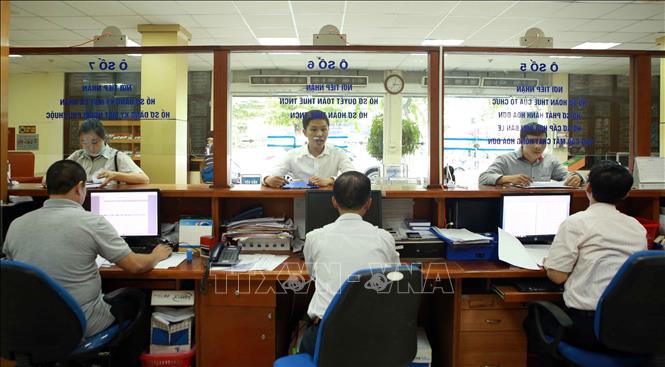












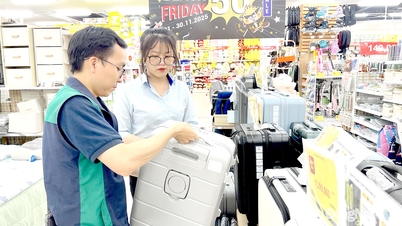



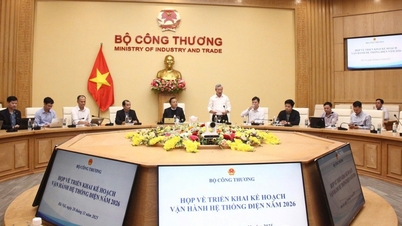





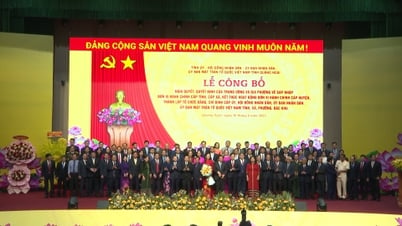


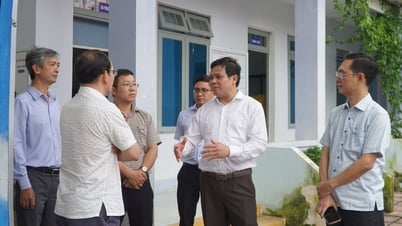

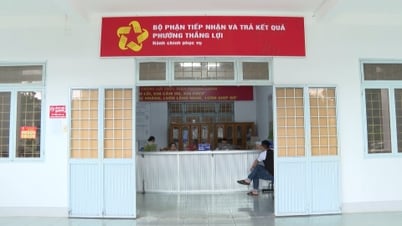

























































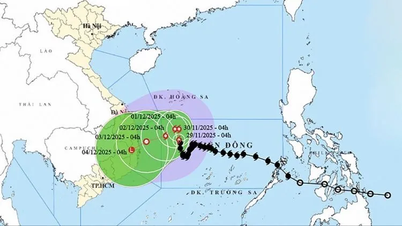

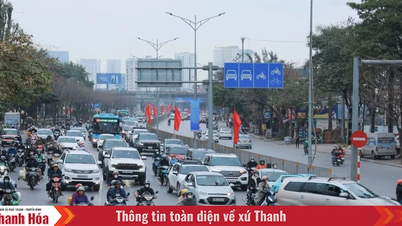















Comment (0)